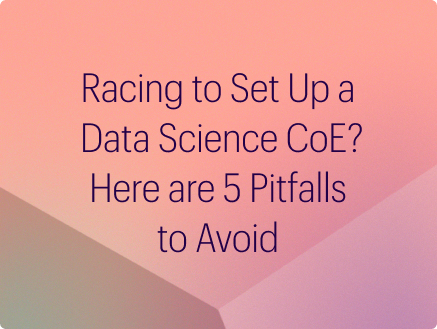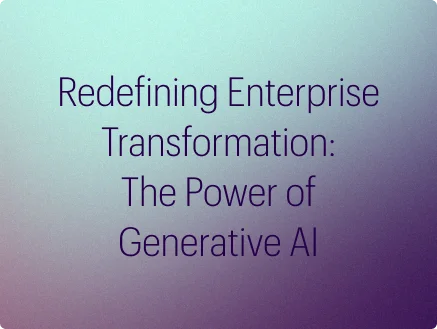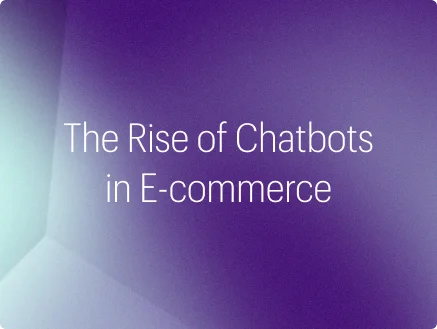Since its release in late November 2022, ChatGPT has truly transformed the AI/ML landscape. Developed by San Francisco-based startup OpenAI, ChatGPT harnesses the power of Natural Language Processing (NLP) to produce human-like responses. Initially designed for more consumer-facing applications, this intelligent chatbot has garnered incredible attention from global businesses looking to tap into its potential. However, due to data privacy and security concerns, many organizations were hesitant to integrate ChatGPT completely. Instead, they opted for open-source foundation models that could be enhanced with context enrichment (training the model with raw data, domain knowledge, market data, etc.). Recognizing this demand, OpenAI has now introduced ChatGPT Enterprise, the first offering from its B2B portfolio [1].
According to OpenAI, ChatGPT Enterprise is an AI assistant tailor-made for specific organizational tasks, ensuring maximum security and privacy for the company data. While we wait to hear more details about the features and pricing of the enterprise version, below are the most compelling offerings that make it attractive for an enterprise:
#1 Enterprise-grade security and privacy: Data and prompts will not be used for training, SOC2 compliance, and higher levels of data encryption.
#2 Large-scale deployments: Enhanced admin controls, single sign-on (SSO), and usage monitoring.
#3 More powerful ChatGPT: No usage caps and higher chat speed.
Arguably the most significant update since ChatGPT first launched, this business-friendly version comes with a game-changing feature–organizations can now secure unlimited access to “Advanced Data Analysis.” Previously known as “Code Interpreter,” this enables users to upload/download files, analyze data, and generate visualizations on custom data. By accessing this feature with ChatGPT Enterprise, business users can now ask complex questions on custom datasets, and it will create and execute codes to answer their questions. As more global enterprises look to enhance their business operations with advanced AI assistants or co-pilots, we can expect the recent launch of ChatGPT Enterprise to drive their adoption further.
However, a few questions still remain unanswered:
1. While advanced data analysis works great on small Excel or CSV datasets, how will it handle complex enterprise datasets?
2. How will ChatGPT integrate with multiple data sources of an enterprise?
3. Currently, for advanced data analysis, all complex computations are handled by OpenAI. With complex datasets, where will that take place? Will OpenAI provide connectors to custom compute infrastructure (like Databricks, Sagemaker, etc.)?
4. How do you inject custom context to answer business questions? We know that a lot of custom tooling/ prompt engineering goes into making these co-pilots work. How will ChatGPT enterprise enable that?
What we think
While we wait to get some of these questions answered, we are excited about the fact that ChatGPT Enterprise will drive the adoption of business co-pilots in an organization. But then again, it also means that we need to enable a lot of custom engineering to unlock the full functionality of these co-pilots.
More specifically, here are the areas that organizations need to focus on while developing custom solutions for a working enterprise ChatGPT (or similar assistants):
1. Organizing enterprise datasets (both structured and unstructured) to make your data ChatGPT ready.
2. Custom Toolkit to provide more domain context to ChatGPT:
- LLMs-specific tools like custom prompts and vector DB are becoming the backbone of these solutions.
- For the LLM to answer a question like “What are my expected sales?” it will need to interact with custom tools like a sales forecast model, which is vetted by data scientists after multiple iterations.
3. While ChatGPT has captivated consumers, a lot of business users may not like the UX and would prefer fully customized enterprise assistants. (For example, multiple choice options, links to the dashboard to deep dive for an answer)
4. Domain-specific dataset creation to fine-tune models. While OpenAI will likely ease the process of fine-tuning and deploying custom models, the dataset creation and the subsequent iterations to arrive at the right model will be very custom.
5. Monitoring model performance over time and assessing if there is a need for an upgrade.
Besides these points, we are also seeing the open-source community coming up with more and more powerful models. And they are actively trying to reduce the cost of deploying these models. While OpenAI has a significant edge over the others now, it is hard to say how long this will continue. And whether building a fully custom enterprise assistant will become more accurate and cost-effective in the long run.
While these questions remain, at this moment, we think it is wise to experiment with ChatGPT Enterprise and understand its true capabilities. However, we must remember that for complex problems, we need some level of customization to unlock full value, even with ChatGPT Enterprise. Also, it is highly likely that the future will be hybrid, where organizations choose to have a combination of fully custom assistants and a ChatGPT Enterprise-like assistant, depending on the complexity of the workflow and cost considerations.
Ready to implement Generative AI into your business functions? Explore our GenAI and Innovation offering here and unlock its transformative potential today.
Bibliography
1. Sherry, Ben. OpenAI Releases ChatGPT for Enterprises. Here’s What It Could Do for … Accessed September 13, 2023. https://www.inc.com/ben-sherry/open-ai-releases-chatgpt-for-enterprises-heres-what-it-could-do-for-your-business.html




